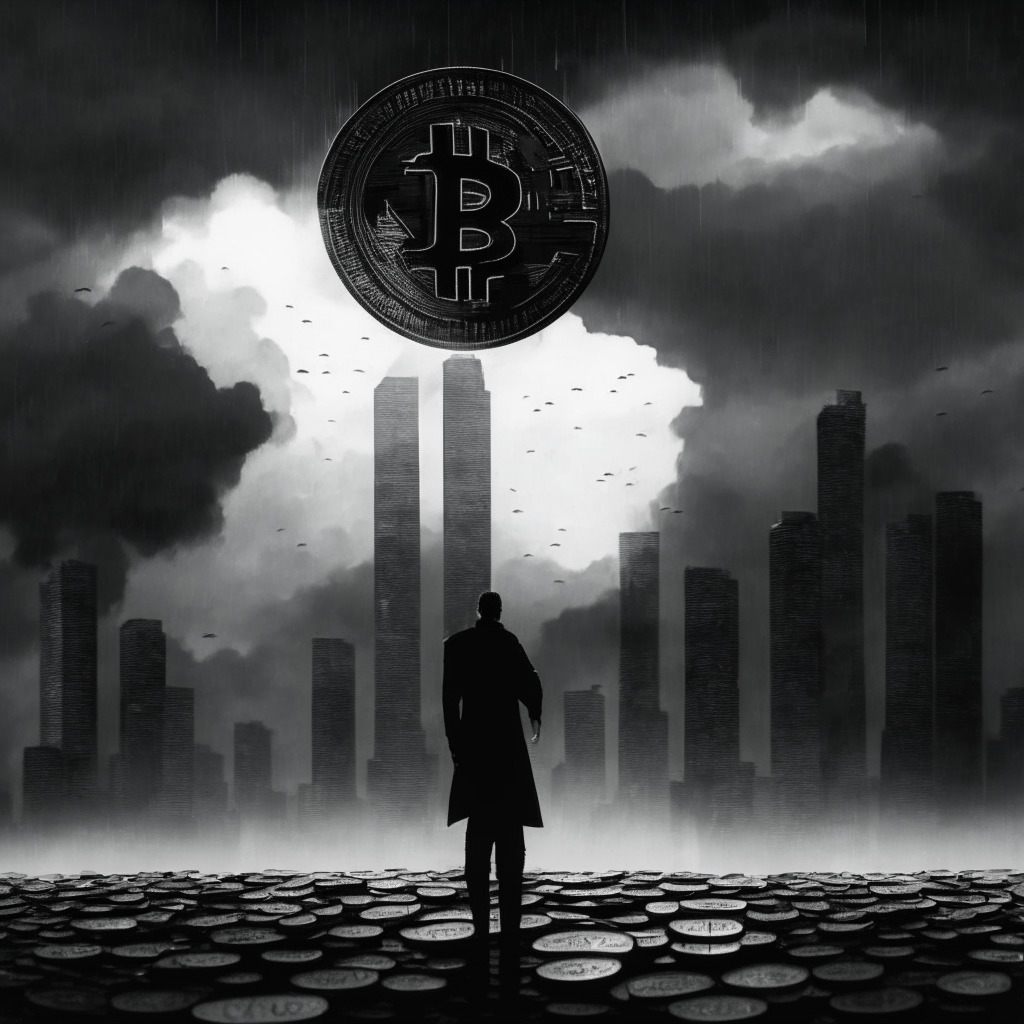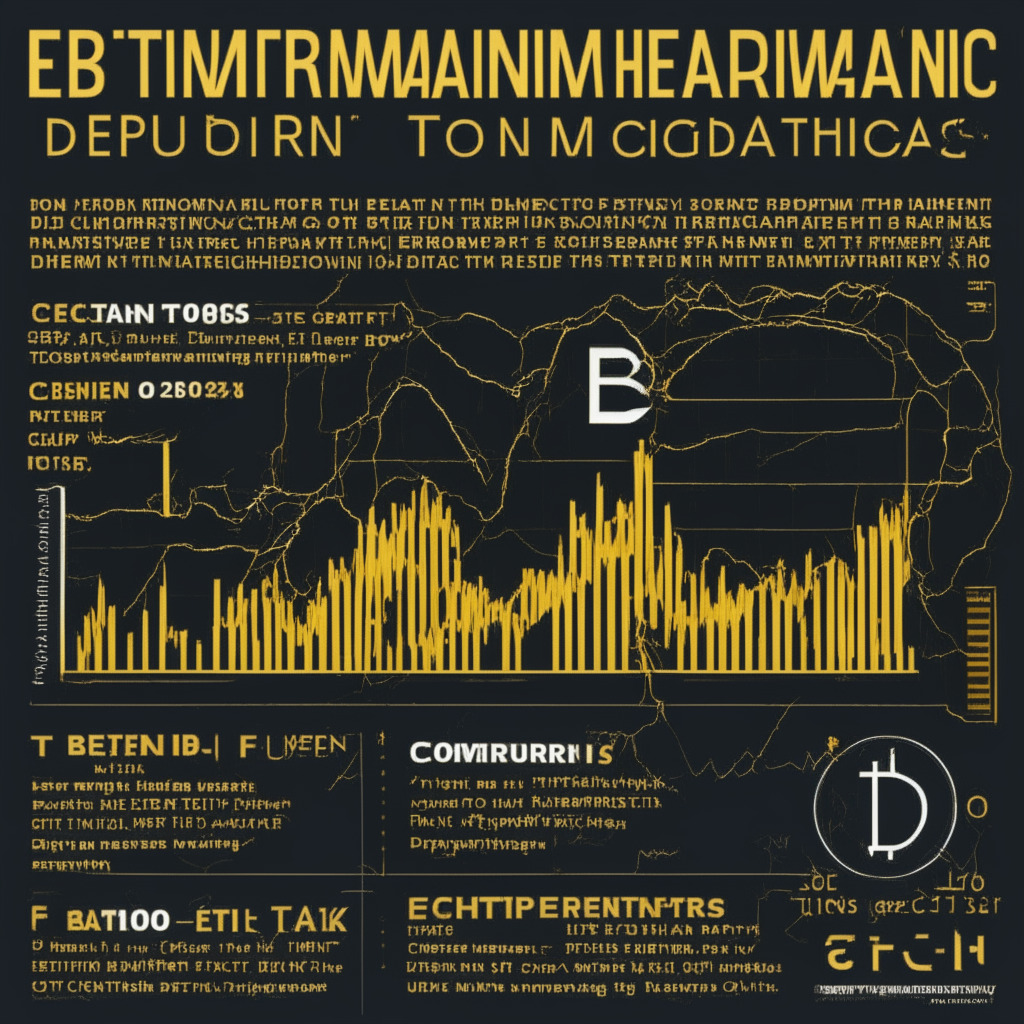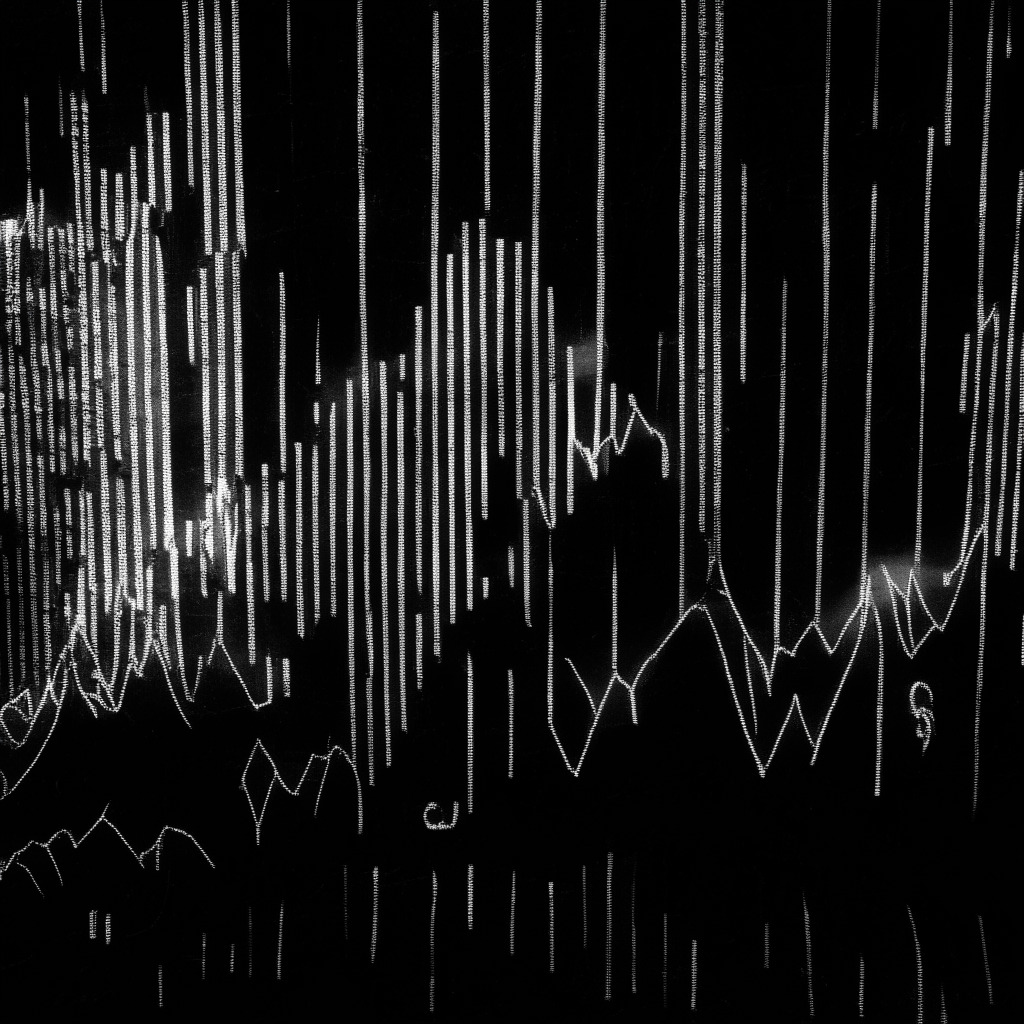Crypto enthusiasts should note Cleveland Fed President Loretta Mester’s support for liquidity tightening and consistent interest rate policy, as her comments impacted Bitcoin’s value. The market’s response demonstrates the significance of global economic events and Federal Reserve policy decisions on the cryptocurrency landscape.
Search Results for: U.S. Federal Reserve
Stablecoin Regulation Debate: Balancing State vs. Federal Control for Innovation & Security
The House Committee on Financial Services’ new Subcommittee on Digital Assets, Financial Technology, and Inclusion debated two proposed bills for stablecoin regulation, highlighting the need for a balance between state and federal control. The ongoing discussion emphasizes finding a suitable middle ground that fosters innovation and guarantees stakeholders’ best interests.
U.S. States Battle Over CBDCs: Privacy Fears, Rising Tension, and a Divided Future
Florida recently banned central bank digital currencies (CBDCs), sparking interest from states such as Louisiana, Alabama, Texas, and North Dakota who also drafted opposition bills. Privacy concerns, government control, and individual freedom are key factors contributing to the contentious debate on CBDCs in the US.
Biden’s Federal Reserve Nominations: How They Could Shape the US Crypto Future and CBDC Debate
President Joe Biden nominates economist Philip Jefferson and former chief economist Adriana Kugler for critical roles in the Federal Reserve, impacting the U.S. government’s approach to cryptocurrencies, blockchain technology, and the potential introduction of a central bank digital currency (CBDC).
Crypto Rebound Amid Federal Reserve Rate Decision: Analyzing BTC and ETH’s Future
Bitcoin rebounds from recent losses, with the market’s focus on the U.S. Federal Reserve rate decision. Ethereum nears $1,900 as both cryptocurrencies await the rate decision’s impact on the market. While optimism and skepticism remain, the crypto community closely watches the possible influence on Bitcoin and Ethereum prices.
Bitcoin’s Fate Amid Federal Reserve Decisions: Who Holds the Cards?
Bitcoin’s value surges 70% this year, with the Federal Reserve’s interest rate decision playing a significant role. As Jerome Powell’s announcement approaches, his clarity on the end of the tightening cycle may impact Bitcoin’s price, as Treasury yields and the U.S. dollar historically affect the cryptocurrency’s performance.
Federal Reserve’s Impact on Bitcoin: Interest Rate Decision and the Future of Crypto
As the Federal Reserve prepares to announce its interest rate decision on May 3, the cryptocurrency market faces uncertainty, with bitcoin trading within a tight range. Investors explore alternative safe havens, including cryptocurrencies, in response to ongoing challenges in the banking industry and economic uncertainty, driving the future adoption of digital assets.
The Final Rate Hike Showdown: US Federal Reserve’s Last Stand for 2023?
After the recent increase in the federal funds rate, the U.S. Federal Reserve is expected […]
Bull vs. Bear: An Unending Tussle in the Cryptocurrency Market
The crypto market is caught amidst bullish and bearish forces with Bitcoin, Ethereum, and BNB showing stability despite declining percentages. Data indicates potential buying opportunities, yet advises patience until market correction ends. Interestingly, long-term stake-holders remain unfazed while the crypto community anticipates U.S. Federal Reserve updates for market impact.
Regulatory Roulette: The Impact of Legal Tussles on the Future of Cryptocurrency
“The ongoing saga of Sam Bankman-Fried’s arrest and subsequent lawsuits against FTX’s former partners has added complexity to the regulatory environment surrounding cryptocurrencies. Affecting venture capital investment and increasing U.S. Federal Reserve involvement, these events are shaping fintech’s future amidst global regulatory flux and uncertainty.”
Shifting Fortunes as Hedera Outshines Bitcoin and Ethereum Amid Legal and Corporate Drama
“Hedera Hashgraph’s HBAR token saw a 15% surge following its integration into the U.S. Federal Reserve’s instant payment solution, FedNow. Meanwhile, Bitcoin and Ethereum remained stable, highlighting how different tokens react uniquely to market factors. Also, Bank of America believes PayPal’s new stablecoin, PYUSD, may struggle to gain adoption due to competition and changing market conditions.”
Fed’s Aggressive Interest Cycle Closure: Impact on Crypto Market and Future Predictions
“While investment banks predict that the aggressive interest rate cycle initiated by the U.S. Federal Reserve may draw to a close, this doesn’t necessarily mean a return of the 2020-21 bull market. Regulatory intervention, rising borrowing costs, tightened credit standards and other economic factors complicate forecasts. However, as inflation is expected to stay on target, a halt to further rate hikes seems plausible.”
Presidential Hopeful’s Take on Bitcoin: Asset, but Not Dollar Stabilizer
Republican Presidential candidate Vivek Ramaswamy, while expressing fondness for Bitcoin, would not consider it as a component to stabilize the U.S. dollar. He believes the U.S. Federal Reserve should focus on maintaining dollar stability against traditional commodities.
Inflation, Interest Rates, and Crypto: Navigating the Financial Climate amidst Economic Uncertainty
The U.S. Federal Reserve’s recent interest rate increase could affect crypto markets. Current top cryptos to consider include Compound, BTC20, Maker, Chimpzee, and Theta Network. Important market changes could come from decisions about Bitcoin ETFs. However, investors should approach with caution due to potential price pullbacks.
Could Bitcoin Decide the Next President? Exploring Cryptocurrency’s Growing Political Influence
“Bitcoin and the crypto community could be deciding factors in a U.S. presidential election. Candidates now need to proclaim their stance on cryptocurrencies. The U.S. Federal Reserve estimates that 8%-11% of the American population, owning cryptocurrencies, can considerably influence the election. Anti-Bitcoin policies may thus, alienate a rapidly growing cohort of voters.”
Exploring FedNow’s Implications: An Unintentional Preparation for CBDC or a Privacy Nightmare?
“The U.S. Federal Reserve’s FedNow initiative may inadvertently pave the way for the necessary infrastructure required by a potential CBDC (Central Bank Digital Currency) in the U.S. While not a digital token, it creates a platform that could facilitate this. The prospect has raised fresh concerns over potential surveillance and control around a digital dollar.”
Unveiling FedNow: Monetary Revolution or Strategic Response to Blockchain?
“The ‘FedNow’ service, launched by the U.S. Federal Reserve, aims to make financial transactions swifter. However, its inception may also signify a move towards a Central Bank Digital Currency (CBDC), potentially merging traditional banking with emerging blockchain technologies.”
Crypto Crusade: Blockchain Advocate’s Bid for Texas House and Wider Implications for Crypto Politics
“Steven Kinard, director of Bitcoin mining analytics at the Texas Blockchain Council, plans to run for the Texas House of Representatives. Advocating for digital freedom and strategic tech investments, he expresses concerns over the U.S. Federal Reserve’s attempts to introduce a CBDC. As the 2024 elections approach, the role of crypto regulation in legislative agendas holds prominence.”
Crypto VC Market Thrives Amid Economic Uncertainty: Bullish Signal or Temporary Surge?
Despite concerns of a macroeconomic recession, the crypto venture capital (VC) market saw remarkable growth, with funding exceeding $1 billion in May 2023. This follows U.S. Federal Reserve’s interest rate hikes amid uncertainty in traditional and decentralized financial markets.
FOMC Meeting Impact on Crypto & Balancing Market Regulations: Uncertainty Ahead?
Crypto market enthusiasts await the U.S. Federal Reserve FOMC meeting, anticipating interest rate decisions, while regulatory challenges persist. Amidst uncertainty, traders are opting for self-custody over leaving assets on exchanges, and the impact of these developments on the cryptocurrency market remains to be seen.
Inflation Data Surprises: How May’s CPI Affects Crypto Market and Bitcoin’s Future
The U.S. Consumer Price Index (CPI) data for May shows a lower increase than predicted, which could impact the crypto market and Bitcoin’s future. With discrepancies between actual and forecasted CPI data, it is crucial for investors to monitor the outcomes of the U.S. Federal Reserve’s monetary policy meeting, as their decisions might significantly impact cryptocurrencies’ trajectory.
Debt Ceiling Deal Impact: Crypto Stability Amid Recession Fears
Positive market sentiments in global stock and crypto markets follow the Biden-McCarthy Debt Ceiling Deal and U.S. Federal Reserve’s potential interest rate decision. However, risks remain for volatile assets like cryptocurrencies due to uncertain macroeconomic conditions, regulatory challenges, and weak technical charts. Conduct thorough research before investing in cryptocurrencies.
Crypto Market Awaits US Inflation Report: Impact on Bitcoin and Wall Street’s Next Move
As the U.S. inflation report release approaches, investors anticipate its impact on the crypto market. The focus lies on Binance and cold wallet storage while observing the U.S. Federal Reserve’s decisions and their effects on cryptocurrencies. Cautious optimism remains among blockchain enthusiasts.
Bitcoin’s Potential Breakout Amid Interest Rate Hike and WallStreetBets Token Collapse
Bitcoin climbs above $29,000 following the U.S. Federal Reserve’s interest rate hike, prompting speculation of a potential 20% rally to $36,000. Meanwhile, WallStreetBets token (WSB) sees a 90% drop in value within 24 hours after a significant market cap boost, emphasizing the volatile nature of the crypto market.
Bitcoin vs Interest Rates: How Fed Decisions Affect BTC’s Future & Stability in Financial Markets
Bitcoin price is yet to regain the $29,200 level and is influenced by the expectation of U.S. Federal Reserve’s interest rate increase. Analyzing excessive leverage, professional traders’ actions with BTC derivatives, futures, and options, Bitcoin might benefit from the Treasury injecting more money into the economy, regardless of the Fed’s interest rate decision.
Fed Rate Hikes: Sign of Economic Strength or Overreliance on Central Bank Control?
The U.S. Federal Reserve raised the federal funds rate to tackle inflation, leading to a rise in stock indexes, precious metals, and crypto markets. With uncertainties surrounding the U.S. debt limit and global economy, it’s vital to weigh the pros and cons of the Fed’s actions.
Navigating Bitcoin’s Tough Road to $30,000: Exploring the Underlying Challenges
Bitcoin’s struggle to surpass $28.5K is attributed to factors such as failed launch of Ether futures ETFs, US Federal Reserve’s economic concern, a dip in Bitcoin’s core trading metrics, and dwindling faith in the prospect of a spot Bitcoin ETF. The path towards $30,000 appears uncertain.
Navigating Economic Uncertainly: Bitcoin and Market Stability Amidst Rising Inflation
“U.S. economy experiences instability with personal consumption expenditure inflation index rising by 3.5%. U.S. Treasuries depreciated by $1.5 trillion due to recent rate hikes, raising investor concerns about assets like Bitcoin and trading market’s ability to weather rising interest rates.”
Bitcoin’s Big Break or Breaking Point? Analyzing the Future of Cryptosphere Amid New Market Highs
“Bitcoin notched a new weekly high of $26,823 on Sep. 28, potentially influenced by the latest U.S. macroeconomic data. While economic indicators lend optimism, analysts urge caution, maintaining that Bitcoin could yet face retractions. The cryptocurrency world eagerly awaits cues from the Federal Reserve Chair.”
Decoding CBDCs: User Privacy, Monetary Freedom, and the Legal Framework
“The future of CBDCs will be influenced by user privacy and monetary freedom of choice, according to Agustín Carstens of the BIS. Legal frameworks protecting user privacy are crucial for their mass adoption. The legitimacy of a CBDC comes from the central bank’s legal authority to issue it, hence legislation is imperative.”
Inflationary Tales: Core CPI’s Impact on Bitcoin and Emerging Economic Trends
“The core CPI showed a gain of 0.3% against an expected 0.2% increase, marking a downward yearly trend to land at 4.3%. This suggests that, despite the surge in headline inflation, if the downward trend in core inflation continues, it could dispel fears of runaway inflation.”
Unraveling the Inflation Surge: Impacts on Cryptocurrency and the Economy
Anticipated U.S. CPI increase of 0.6% in August, triple July’s pace, with yearly forecast at 3.6%. Surge in inflation attributed to rising oil prices. Meanwhile, Bitcoin and the broader cryptocurrency market are experiencing a slump, partially due to persistently high interest rates. An expected 4.3% inflation rate raises concern for policymakers.































